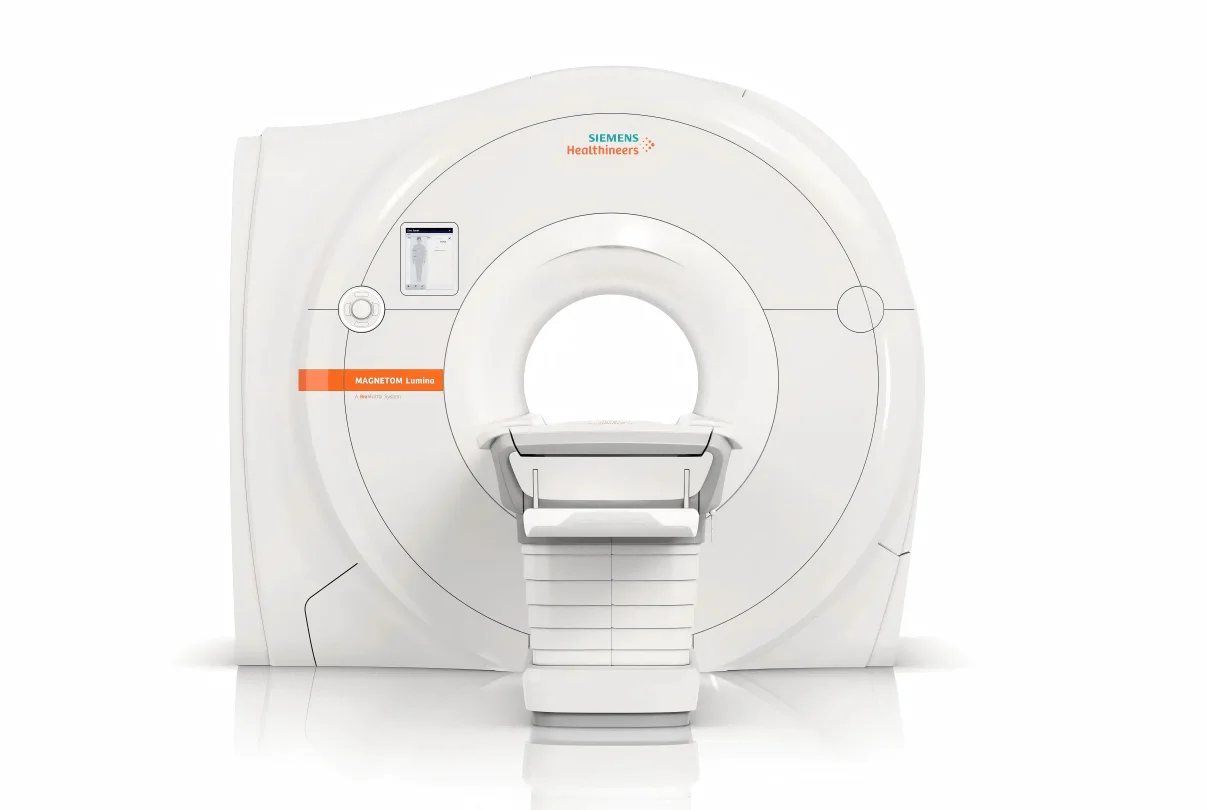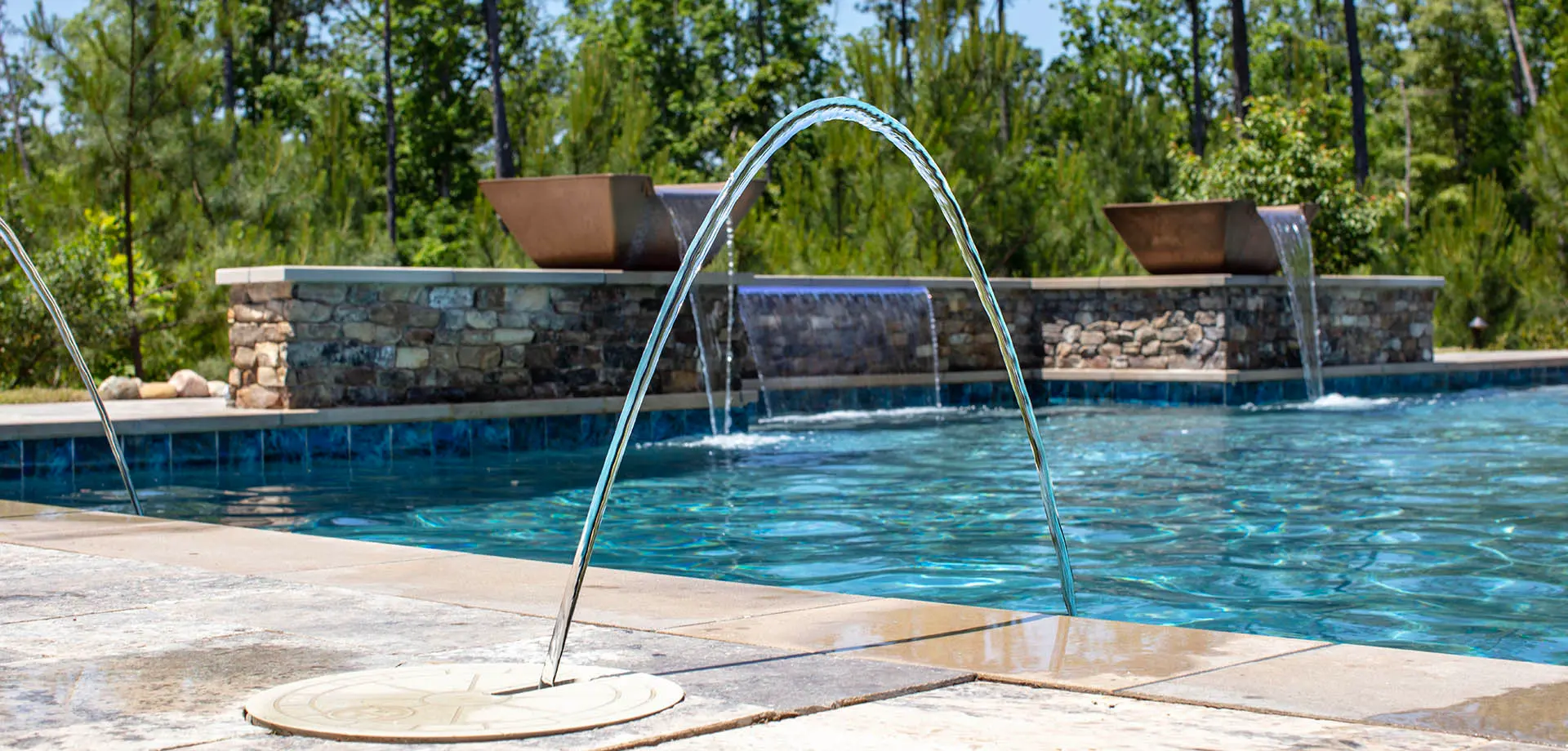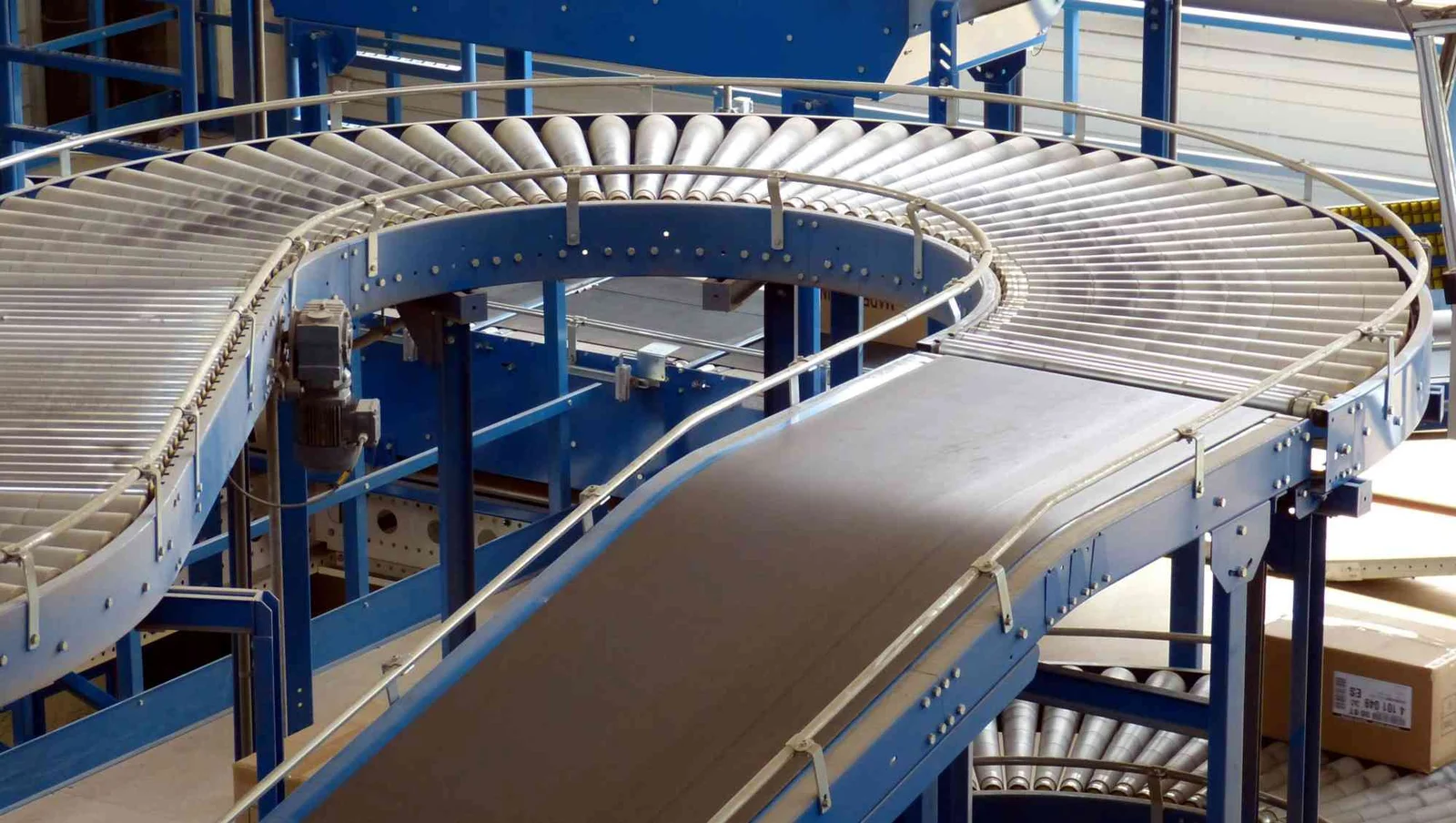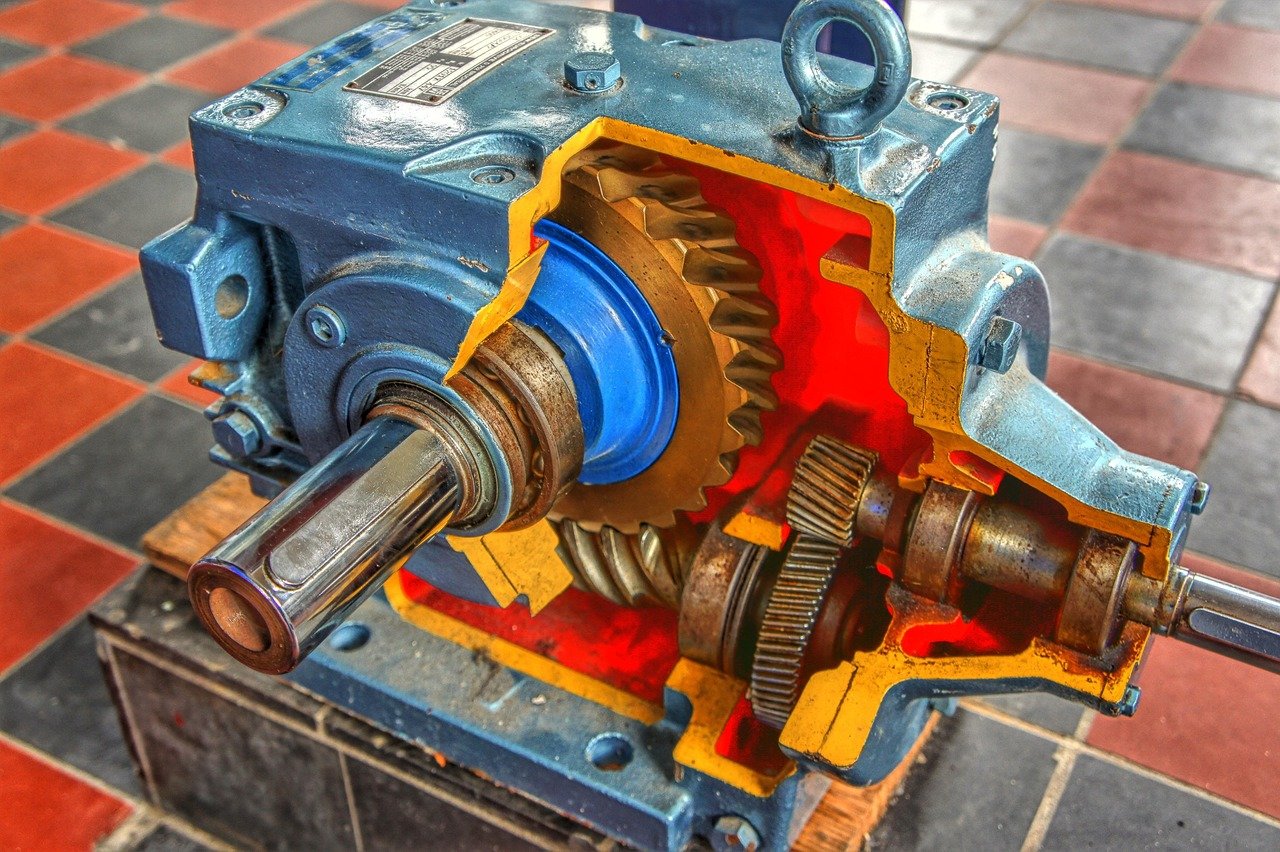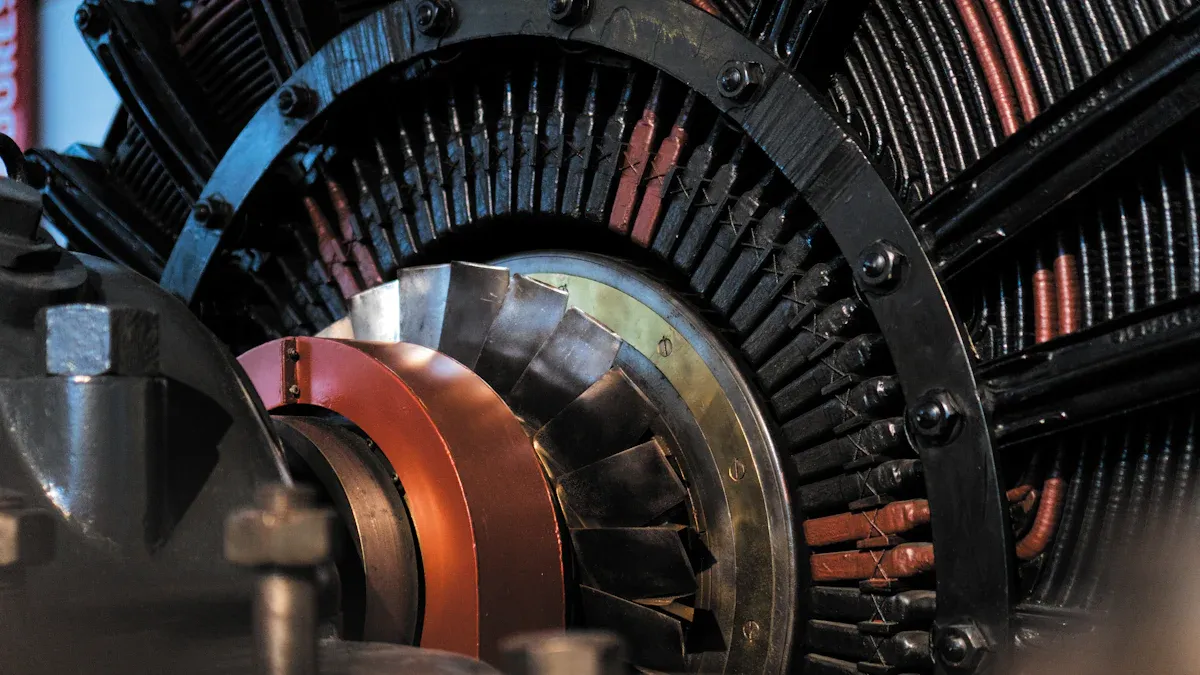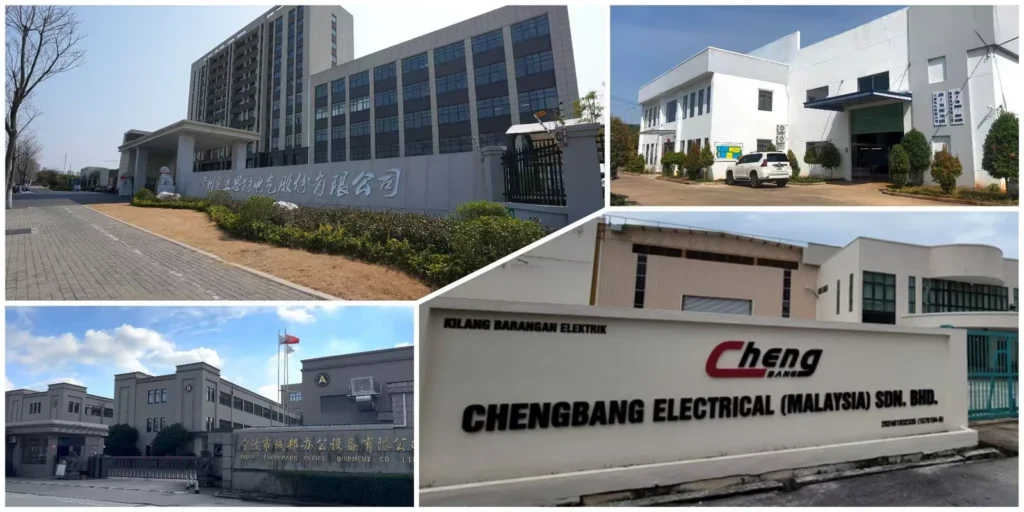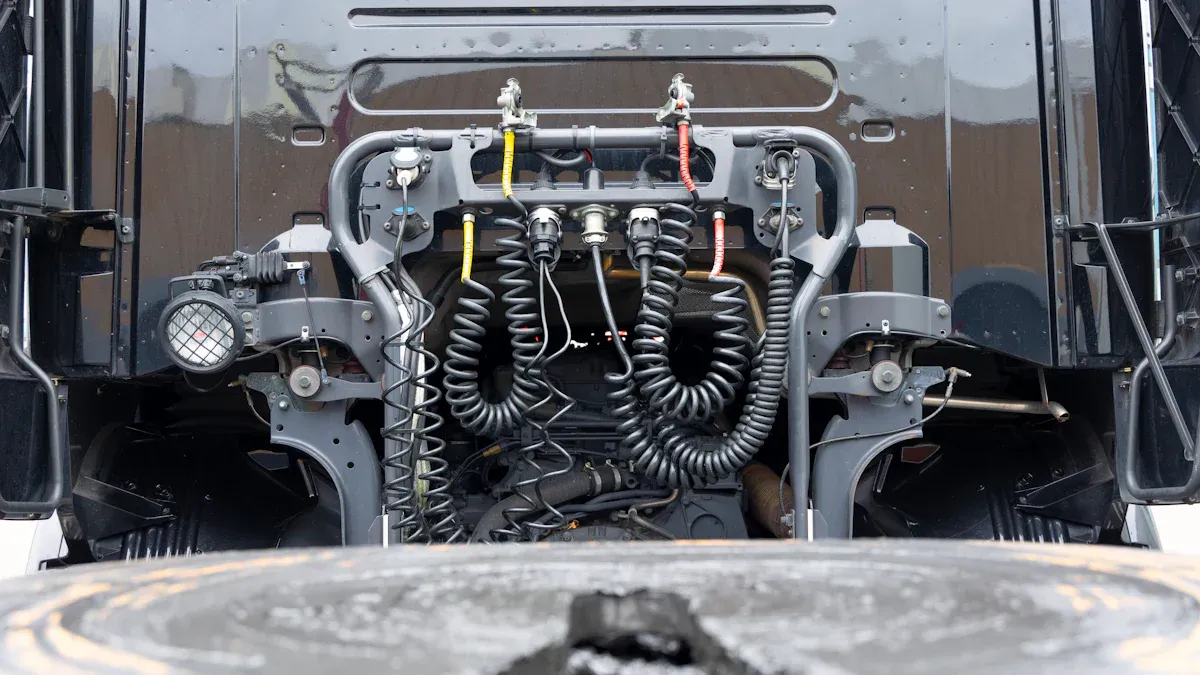
You want your motorhome motor and power systems to work well everywhere you go. Very hot, cold, or wet weather can cause trouble if your equipment is not ready. Customizing your setup helps you stay safe and comfortable. Modern solutions from honest let you change your motorhome motor for any climate. This helps you keep your trips easy and without worry.
Key Takeaways
-
Hot weather makes batteries wear out faster and breaks parts. Use shade, covers, and airflow to keep your motorhome safe.
-
Cold places need strong insulation and slow battery charging. Use heaters that work with your fuel to stay warm and safe.
-
High humidity can cause rust and electrical trouble. Use waterproof connectors and anti-rust spray. Keep air moving inside.
-
Pick AC motors for steady shore power. Use DC motors for trips away from power. Gearmotors and universal motors give more power and control.
-
Change batteries to lithium and add solar panels for extra power. Use smart systems to manage energy and keep your motorhome working well.
Climate Zone Challenges
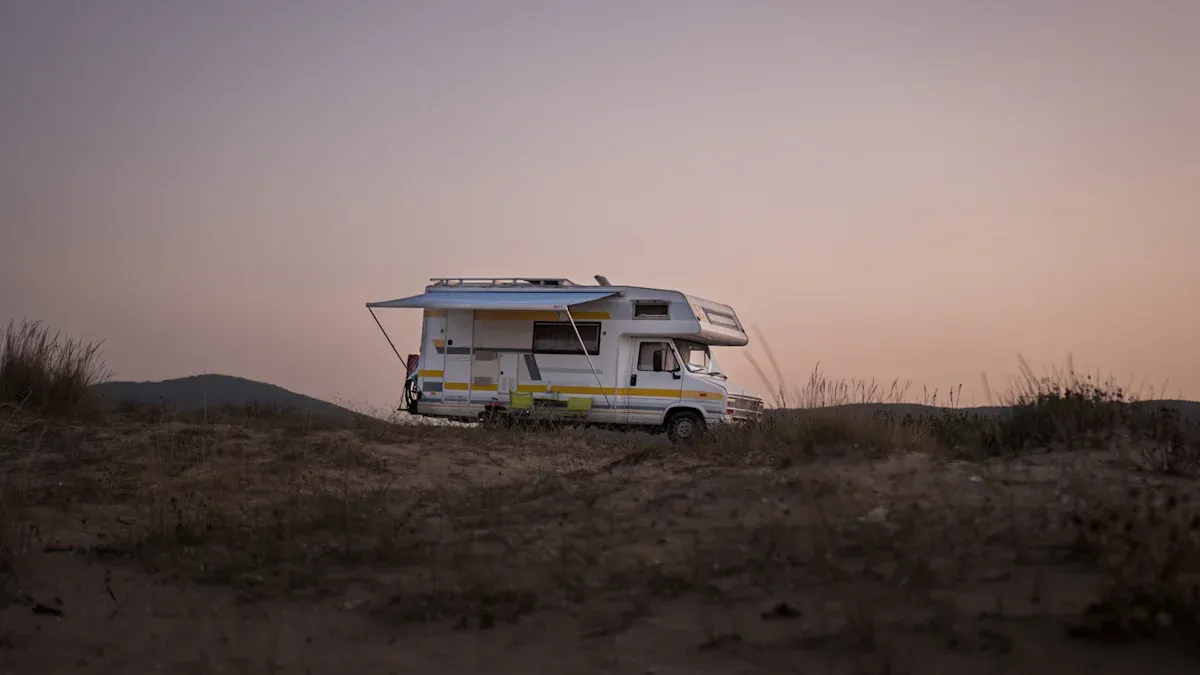
Heat and Sun
When you travel to hot, sunny places, your motorhome works harder. High heat can make your batteries last much less time. For example, a battery that lasts 10 years at 77°F may only last 5 years at 92°F. If it gets hotter than 104°F, batteries can break fast. Sun and heat also damage seals, roofs, and electric parts. You can help your equipment by parking in the shade, using covers, and letting air move through your motorhome.
Tip: Keep your motorhome under a roof and check your batteries often when it is hot.
|
Modification/Strategy |
Description |
Benefit/Reason |
|---|---|---|
|
Large LFP battery banks |
Keeps you cool when solar is limited |
|
|
Ground solar panels |
Add 600W flexible panels on the ground |
More solar power without roof changes |
|
Hybrid inverter |
Mixes power from shore, solar, and batteries |
Lets you run AC even with weak power sources |
|
Induction cooking |
Uses electric stovetop |
Reduces heat inside your motorhome |
Cold and Freezing
Cold weather brings new problems. Lithium batteries work better than lead-acid batteries in the cold. They keep most of their power. But charging lithium batteries when it is freezing can hurt them. You should charge them slowly or warm them up first. Cold makes batteries lose power faster and can cause them to stop working.
To stay warm, use heaters that run on diesel, propane, or electricity. Good insulation, like foam boards or special fiber kits, keeps heat inside. Seal all cracks and corners to stop cold air from getting in.
Note: Pick a heater that matches your motorhome’s fuel for best results.
Humidity and Moisture
High humidity can cause big trouble for your motorhome’s electric parts. Water in the air can make wires and connectors rust. This can cause shorts, blinking lights, or even fires.
-
Water inside electric parts makes them break more easily.
-
Moisture can make outlets stop working and rust connectors.
-
Road salt and chemicals make rust worse.
-
Use dehumidifiers, let air move, and spray anti-rust spray.
-
Check wires and connectors often for rust or damage.
Tip: Use waterproof connectors and seal all joints to keep water out.
High Altitude
When you go to high places, your motorhome motor and generator get weaker. Thin air means less oxygen, so the engine cannot burn fuel as well. You may feel less power above 1,000 feet. Generators lose about 3% of their power for every 1,000 feet higher you go.
-
Engines may need fuel additives or lower octane fuel.
-
Tire pressure drops at high places, so check your tires often.
-
Some generators need special kits to work well in thin air.
Remember: Diesel generators work better at high places, but all engines lose some power as you go higher.
Motorhome Motor Selection
Picking the right Motorhome Motor helps you travel safely. It also keeps you comfortable in any climate. You should think about how your motor deals with heat, cold, humidity, and high places. Honest has many motor choices you can change for your needs. Here are the main types and features to help you choose.
AC vs DC Motors
Motorhomes use two main motor types: AC and DC. Each type is good for different reasons.
-
AC Motors: These motors, like the Single-phase AC asynchronous motor from honest, work best with steady power. They are easy to take care of and last a long time. If you stay at campgrounds with shore power, AC motors are a good pick. They also handle changes in voltage well. This helps if the power grid is not stable.
-
DC Motors: Brushed dc motors from honest are great for off-grid trips. They run straight from your battery system. DC motors start strong, even with heavy loads. They are simple to control and work well with solar and battery setups.
When you choose between AC and DC, think about where you will go most. If you camp off-grid or in places with changing power, DC motors may be better. If you use shore power a lot, AC motors are a solid choice.
Tip: Honest can help you set up your Motorhome Motor for both AC and DC systems. This way, you get great performance in any climate.
Gearmotors and Universal Motors
Some motorhome systems need more than basic power. Gearmotors and universal motors from honest give you extra choices.
-
Gearmotors: These motors have a gearbox with the motor. They give you more torque and let you control speed better. Honest’s gearmotors keep out dust, oil, and moisture. This makes them good for slide-outs, awnings, or beds that move. They work well in any weather.
-
Universal Motors: These motors run on both AC and DC power. Honest’s universal motors are small and light. They work well in portable tools and devices inside your motorhome. You can use them for food processors or small pumps. They start strong and run fast, so they help in many ways.
If you want your Motorhome Motor to do tough jobs or work in wet or dusty places, gearmotors and universal motors are smart picks.
Climate-Ready Features
You want your motorhome to stay comfy wherever you go. The right Motorhome Motor helps, but other features matter too.
-
Make sure your heating and cooling systems work in hot and cold weather.
-
Use high R-value insulation (7 or above) in your walls. This keeps heat in or out.
-
Put in dual pane windows to save energy and keep the inside temperature steady.
-
Add pipe heaters and heated tanks to stop water lines from freezing.
-
Pick an enclosed, insulated, and heated underbelly to protect pipes and ducts.
-
Choose a strong A/C system that can also work as a heat pump for cold nights.
Check your insulation and ventilation often. Good insulation keeps the inside temperature steady. Proper ventilation helps air move and stops moisture from building up. Honest’s motors have sealed and protected designs. They keep working even in wet or dusty climates.
Note: Honest gives custom solutions for your Motorhome Motor. You can match your motor and power system to the places you want to visit, from hot deserts to snowy mountains.
Power System Upgrades
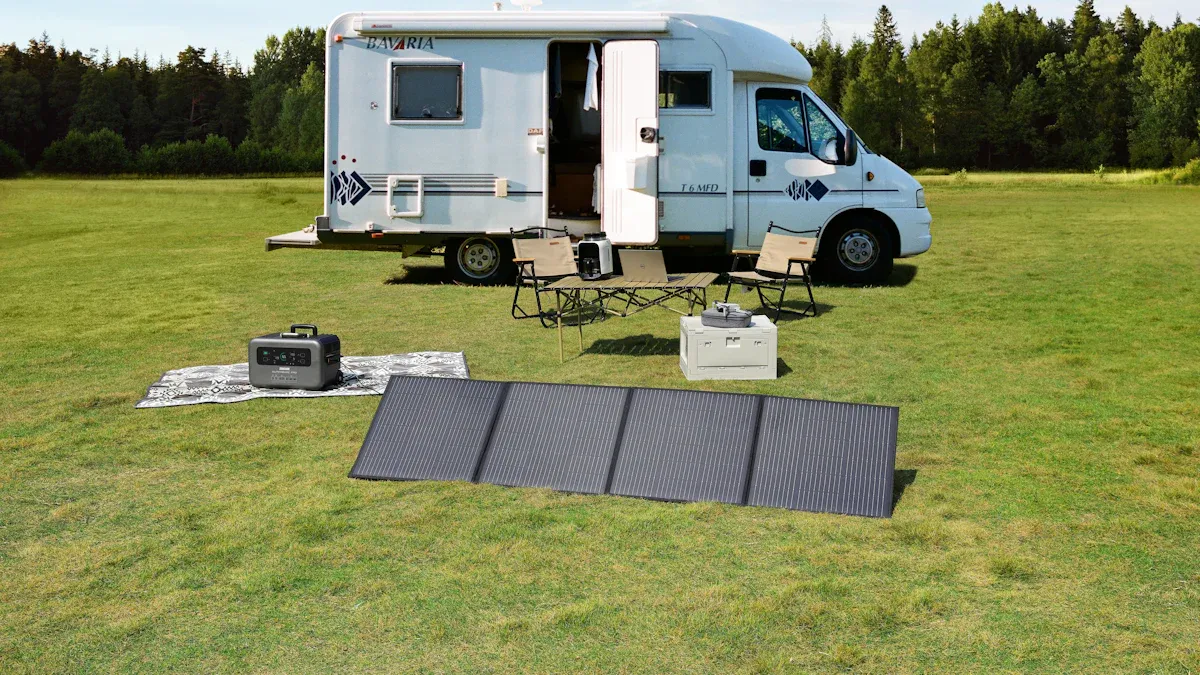
Batteries and Solar
If you upgrade your battery and solar setup, you get more freedom. Lithium batteries give you more power and last longer than lead-acid batteries. LiFePO4 batteries work well in both hot and cold weather. They keep their power in the cold and do not wear out fast in the heat. Some new lithium batteries have heaters inside. This lets you charge them even when it is freezing outside.
-
Lead-acid batteries lose power in the cold and break down faster in the heat.
-
Lithium batteries last longer and give more energy, but you need the right charger.
-
Good insulation and temperature control help your batteries work better.
Adding more solar panels gives you much more power off-grid. For example, if you have 2,760 watts of solar panels and an 11 kWh battery bank, you can run air conditioning and big appliances without shore power. Solar panels help you stay powered up in sunny places. They also mean you do not need a generator as much.
Generators and Alternators
Generators and alternators help keep your batteries charged. They also keep your systems running when solar is not enough. Generators give backup power for big things, like baking or running a water maker. They are reliable and do not take up much space. But they work best for long use, not short times.
Alternators charge your batteries while you drive. Big alternators can handle large loads, like air conditioning, for hours. Some systems use smart controls to start the generator only when needed. This saves fuel and makes the generator last longer. In very hot or cold places, using solar, alternators, and a generator together gives you the most reliable power.
Tip: Inverter generators are quieter and use less fuel.
Smart Power Management
Smart power management systems help you use energy wisely. These systems show how much power you make and use. You can control lights, climate, and water systems from a touchscreen or your phone. Some systems send alerts if something needs attention. This helps you fix problems before they get worse.
Modern smart systems connect with Bluetooth or Wi-Fi. You can check your power from anywhere. This makes it easy to keep your motorhome running well, even in tough climates. Smart power management helps you save energy, stay comfortable, and enjoy your travels with less worry.
Installation, Safety, and Compliance
DIY vs Professional
You can put in your motorhome motor and power system by yourself or pay a professional. Both ways have good and bad points.
-
-
You spend less money if you do it yourself.
-
You learn how your system works by doing the job.
-
You pick every part and design it your way.
-
You might have to do hard electrical work and fix the roof.
-
You use more time and must fix problems alone.
-
-
-
Experts finish the job fast and do it right.
-
You get help and a warranty for your system.
-
Professionals know how to set up tricky parts and follow rules.
-
You pay more for their work and may not know all about your system.
-
Tip: Honest’s motors have UL, CE, and ISO certifications. You get safe products if you install them or hire someone.
Maintenance and Inspection
Doing regular checks keeps your motorhome safe and working well. Look at your system before each trip and during long stays.
-
Change coolant when the schedule says.
-
Make sure the radiator fan is working.
-
Check spark plugs and change them every 30,000 to 50,000 miles.
-
Look at ignition wires and coils for problems.
-
Check for rust, cracks, or holes in the exhaust.
-
Use OBD-II tools to find engine problems early.
-
Run the engine every month by driving or using the generator.
-
Change oil, swap air filters, and keep fluids full.
-
Test battery voltage and use a maintainer when storing.
-
Clean battery ends and check fluid if you use wet cell batteries.
Note: Honest’s motors last a long time and are easy to care for. Certified products help you avoid trouble and keep your system working.
Legal and Safety
You need to follow safety steps and laws when you add or change systems.
-
Turn off the main breaker inside your RV.
-
Wear safety glasses and gloves.
-
Use a voltage tester to check for live wires.
-
Tie down all wires and equipment.
-
Follow the maker’s instructions and local codes.
-
Ground all new parts the right way.
-
Ask a pro for help if you are not sure.
-
Test your system after you finish by checking wires, load, voltage, and grounding.
|
Certification/Standard |
Purpose |
Applies To |
|---|---|---|
|
Emission compliance |
Engines, vehicles |
|
|
UL, CE, ISO |
Safety and quality |
Motors, components |
|
RV safety and inspection |
Motorhomes |
You must follow EPA and RVIA rules for emissions and safety. Honest’s motors and systems have these certifications, so you stay safe and legal on the road.
Safety first: Always follow the law and use certified products for every upgrade.
Customizing your Motorhome Motor and power system begins with knowing how you travel.
-
Think about how long your trips are.
-
Count how many people will go with you.
-
Decide which places you like to visit most.
-
See if you want things like slide-outs or more storage.
-
Check how often you use your motorhome.
-
Think about what makes you feel comfortable.
-
Try driving different motorhome sizes.
-
Make sure you have space to park at home.
There are lots of guides, wiring diagrams, and videos online that can help you plan upgrades. If you want to make big changes, talk to a professional or ask honest for advice that matches what you need.
FAQ
What motor type works best for off-grid camping?
You should choose a DC motor for off-grid camping. DC motors run directly from your battery system. They work well with solar panels and give strong starting power for heavy loads.
How do I protect my motorhome’s power system in wet climates?
Use waterproof connectors and sealed motors. Honest’s gearmotors have IP65 protection. Check wires often for rust or damage. Keep air moving inside your motorhome to reduce moisture.
Can I upgrade my motorhome’s motor for high-altitude travel?
Yes, you can. Honest offers motors and generators that handle thin air better. You may need special kits for your generator. Always check your engine’s power at higher elevations.
How often should I inspect my motorhome’s motor and power system?
You should inspect your system before every trip and once a month during long stays. Look for loose wires, rust, and battery health. Regular checks help you avoid problems on the road.
